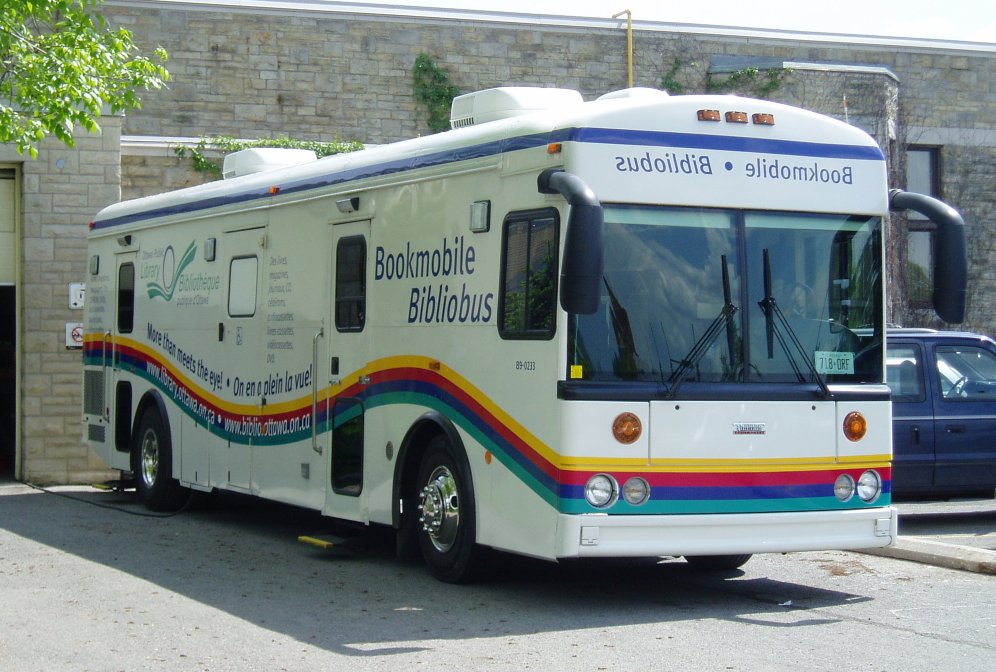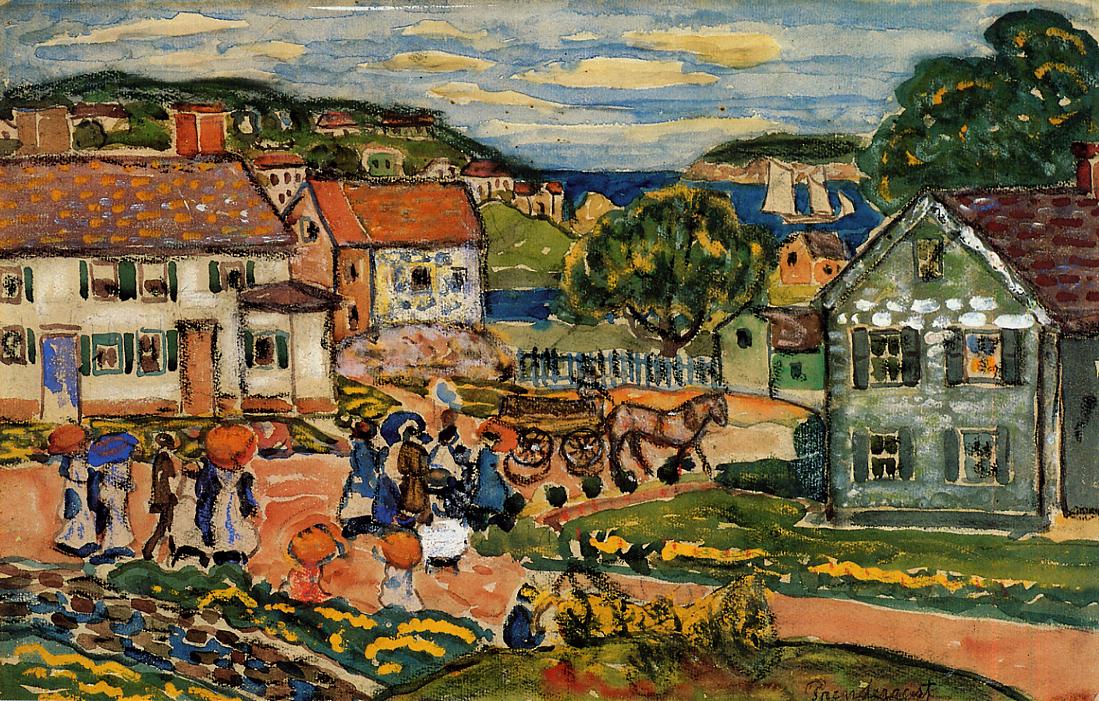|
Marblehead Libraries
Marblehead Libraries were collections of books that comprised a traveling library service for African-Americans and poor rural whites in the Southern United States beginning in 1910. The libraries, funded by James J.H. Gregory of Marblehead, Massachusetts, traveled primarily to schools; the service often provided the only access to library books for African Americans in the South. Establishment and administration of Marblehead Libraries Because municipalities in the South provided little to no public library service to African Americans through the 1910s, philanthropic efforts often presented their only access to library books. James J.H. Gregory, a white seed salesman who had seen the plight of southern blacks during his time as a Union Civil War soldier, recognized the harm done when they were denied access to public libraries; Gregory believed everyone should have access to "character-forming books". In addition to his other philanthropy, Gregory sought to send books to "sc ... [...More Info...] [...Related Items...] OR: [Wikipedia] [Google] [Baidu] |
Mobile Library
A bookmobile or mobile library is a vehicle designed for use as a library. They have been known by many names throughout history, including traveling library, library wagon, book wagon, book truck, library-on-wheels, and book auto service. Bookmobiles expand the reach of traditional libraries by transporting books to potential readers, providing library services to people in otherwise underserved locations (such as remote areas) and/or circumstances (such as residents of retirement homes). Bookmobile services and materials (such as Internet access, large print books, and audiobooks), may be customized for the locations and populations served. Bookmobiles have been based on various means of conveyance, including bicycles, carts, motor vehicles, trains, watercraft, and wagons, as well as camels, donkeys, elephants, horses, and mules. History 19th century In the United States of America, The American School Library (1839) was a traveling frontier library published by Harper & Bro ... [...More Info...] [...Related Items...] OR: [Wikipedia] [Google] [Baidu] |
Southern United States
The Southern United States (sometimes Dixie, also referred to as the Southern States, the American South, the Southland, or simply the South) is a geographic and cultural region of the United States of America. It is between the Atlantic Ocean and the Western United States, with the Midwestern and Northeastern United States to its north and the Gulf of Mexico and Mexico to its south. Historically, the South was defined as all states south of the 18th century Mason–Dixon line, the Ohio River, and 36°30′ parallel.The South . ''Britannica.com''. Retrieved June 5, 2021. Within the South are different subregions, such as the |
Traveling Library
A traveling library is a collection of books lent for stated periods by a central library to a branch library, club, or other organization or, in some instances, to an individual. The chief characteristics from which it derives its name are its temporary location in the place to which the collections of books is sent and the implication that any traveling library will or may be changed for another collection of books. A bookmobile is an example. History The date of the first traveling library is uncertain. Among its forerunners can be noted the itinerant chapman and ballad seller, the religious colporteur, and the camp library of Napoleon I listed in Bourrienne's ''Mémoires''. The traveling library can also be cited as a logical outgrowth of the "circulating schools" of Wales, promoted in 1730 by Griffith Jones, and the later similar extension schools of the General Assembly of the Kirk of Scotland in the Highlands and the Scottish islands. The first really practicable travelin ... [...More Info...] [...Related Items...] OR: [Wikipedia] [Google] [Baidu] |
James John Howard Gregory
James John Howard Gregory (1827-1910) was a businessman and philanthropist from Marblehead, Massachusetts. Gregory built his wealth selling seeds via catalogues and was known as the "Seed King of Marblehead". and served in local political offices. Early life Gregory was born in Marblehead on November 7, 1827, to James Adams Gregory and Ruth Roundey Gregory. His father worked as a Justice of the Peace and a Customs Officer in Marblehead. Gregory worked as a teacher at Marblehead Academy and the Farm School before graduating from Amherst College Amherst College ( ) is a private liberal arts college in Amherst, Massachusetts. Founded in 1821 as an attempt to relocate Williams College by its then-president Zephaniah Swift Moore, Amherst is the third oldest institution of higher educatio ... in 1850. Following graduation, Gregory worked as the principal of Derby Academy (Hingham), Derby Academy in Hingham, Massachusetts, Hingham before going starting his own business. Busines ... [...More Info...] [...Related Items...] OR: [Wikipedia] [Google] [Baidu] |
Marblehead, Massachusetts
Marblehead is a coastal New England town in Essex County, Massachusetts, along the North Shore (Massachusetts), North Shore. Its population was 20,441 at the 2020 United States Census, 2020 census. The town lies on a small peninsula that extends into the northern part of Massachusetts Bay. Attached to the town is a near island, known as Marblehead Neck, connected to the mainland by a narrow isthmus. Marblehead Harbor, protected by shallow shoals and rocks from the open sea, lies between the mainland and the Neck. Beside the Marblehead town center, two other villages lie within the town: the Old Town, which was the original town center, and Clifton, which lies along the border with the neighboring town of Swampscott, Massachusetts, Swampscott. A town with roots in commercial fishing and yachting, Marblehead was a major shipyard and is often referred to as the birthplace of the United States Navy, American Navy, a title sometimes disputed with nearby Beverly, Massachusetts, Beve ... [...More Info...] [...Related Items...] OR: [Wikipedia] [Google] [Baidu] |
Union (American Civil War)
During the American Civil War, the Union, also known as the North, referred to the United States led by President Abraham Lincoln. It was opposed by the secessionist Confederate States of America (CSA), informally called "the Confederacy" or "the South". The Union is named after its declared goal of preserving the United States as a constitutional union. "Union" is used in the U.S. Constitution to refer to the founding formation of the people, and to the states in union. In the context of the Civil War, it has also often been used as a synonym for "the northern states loyal to the United States government;" in this meaning, the Union consisted of 20 free states and five border states. The Union Army was a new formation comprising mostly state units, together with units from the regular U.S. Army. The border states were essential as a supply base for the Union invasion of the Confederacy, and Lincoln realized he could not win the war without control of them, especially Maryla ... [...More Info...] [...Related Items...] OR: [Wikipedia] [Google] [Baidu] |
American Civil War
The American Civil War (April 12, 1861 – May 26, 1865; also known by other names) was a civil war in the United States. It was fought between the Union ("the North") and the Confederacy ("the South"), the latter formed by states that had seceded. The central cause of the war was the dispute over whether slavery would be permitted to expand into the western territories, leading to more slave states, or be prevented from doing so, which was widely believed would place slavery on a course of ultimate extinction. Decades of political controversy over slavery were brought to a head by the victory in the 1860 U.S. presidential election of Abraham Lincoln, who opposed slavery's expansion into the west. An initial seven southern slave states responded to Lincoln's victory by seceding from the United States and, in 1861, forming the Confederacy. The Confederacy seized U.S. forts and other federal assets within their borders. Led by Confederate President Jefferson Davis, ... [...More Info...] [...Related Items...] OR: [Wikipedia] [Google] [Baidu] |
Atlanta University
Clark Atlanta University (CAU or Clark Atlanta) is a private, Methodist, historically black research university in Atlanta, Georgia. Clark Atlanta is the first Historically Black College or University (HBCU) in the Southern United States. Founded on September 19, 1865, as Atlanta University, it consolidated with Clark College (established 1869) to form Clark Atlanta University in 1988. It is classified among "R2: Doctoral Universities – High research activity". History Atlanta University was founded on September 19, 1865, as the first HBCU in the Southern United States. Atlanta University was the nation's first graduate institution to award degrees to African Americans in the Nation and the first to award bachelor's degrees to African Americans in the South; Clark College (1869) was the nation's first four-year liberal arts college to serve African-American students. The two consolidated in 1988 to form Clark Atlanta University. Atlanta University In the city of Atlanta ... [...More Info...] [...Related Items...] OR: [Wikipedia] [Google] [Baidu] |
Mobile Libraries
A bookmobile or mobile library is a vehicle designed for use as a library. They have been known by many names throughout history, including traveling library, library wagon, book wagon, book truck, library-on-wheels, and book auto service. Bookmobiles expand the reach of traditional libraries by transporting books to potential readers, providing library services to people in otherwise underserved locations (such as remote areas) and/or circumstances (such as residents of retirement homes). Bookmobile services and materials (such as Internet access, large print books, and audiobooks), may be customized for the locations and populations served. Bookmobiles have been based on various means of conveyance, including bicycles, carts, motor vehicles, trains, watercraft, and wagons, as well as camels, donkeys, elephants, horses, and mules. History 19th century In the United States of America, The American School Library (1839) was a traveling frontier library published by Harper & Bro ... [...More Info...] [...Related Items...] OR: [Wikipedia] [Google] [Baidu] |




.jpg)
